Top Futurist Speakers to Have at Your Conference in 2021
Top Futurist Speakers to Have at Your Conference in 2021

The future always arrives faster than you think and it often hits before you’re ready. Some people, though, have a talent for spotting trends. They see which technologies will make an impact, how new innovations will change society, and what’s coming up next for business and commerce. They also share what they’ve discovered. I’ve put together a list of the top futurist speakers to have at your conference in 2021.
Here are 25 of the best futurist keynote speakers. Each of these futurists speaks at major tech events — and when they’re not sharing their knowledge with audiences, they help top-level executives and marketing teams to prepare for the future.
- Joel Comm
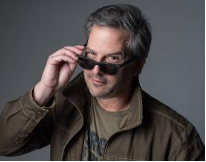
Joel Comm tops the list with his almost 25 years of doing business online. He co-created Yahoo! Games, published 15 books, built a chart-topping iPhone app, and hosts a top blockchain podcast. He now leads the way with digital collectibles, a fast-growing field that combines blockchain technology with collection-building.
Comm is a top futurist speaker who helps businesses and brands arrive before the competition, and makes seemingly complex material easy to understand, refreshing, informative, and entertaining.
- Lisa Bodell

New technology and work practices can be complex and confusing. Lisa Bodell makes it simple. As the CEO of FutureThink, an innovation training firm, she provides innovative solutions that cut through the complexity.
Bodell spots new changes, identifies the most important characteristics that companies need to understand, and teaches them how to adapt and use new innovations.
- Bran Ferren
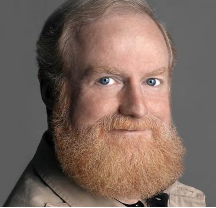
Bran Ferren used to have the best job in the world. After creating special effects for movies and theme parks, he became president of research and development and creative technology for Walt Disney.
Ferren is now the co-founder and Chief Creative Officer of Applied Minds, a design and invention firm. He also invented the pinch-to-zoom technology popularized by Apple. Ferren’s talks focus on the value of innovations and explain why we should care about new technology.
- Tan Le

For Tan Le, it’s all about the brain. A former refugee from Vietnam and now the founder and CEO of EMOTIV, a neuroinformatics company, Tan Le uses electroencephalography to deepen understanding of the brain and to develop brain-computer interfaces.
Her work has won her a host of innovation awards. Tan Le is the speaker you need to hear when you want to know how you’ll be using your brain in the future.
- Kate Ancketill
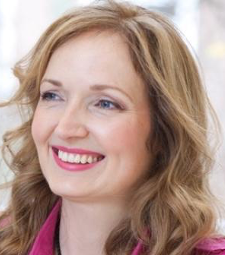
Kate Ancketill is the co-founder and CEO of GDR Creative Intelligence, a consultancy that helps brands to identify innovation trends. Her talks are packed with research that has been tested in the field and shown to help brands stay ahead of upcoming changes.
Ancketill explains how big companies change with technological and social innovation, and adapt to new customer behaviors.
- Brian Solis
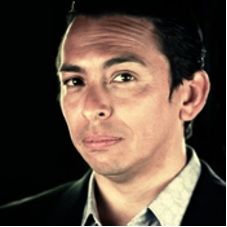
Brian Solis is the Global Innovation Evangelist at Salesforce where he focuses on thought leadership and research into digital transformation, innovation and disruption, and the cognitive enterprise.
Solis is also the creator of “Lifescaling,” a model for living a creative digital life without diversions, focused on what’s important and making the most of the possibilities that technology offers.
- William Higham
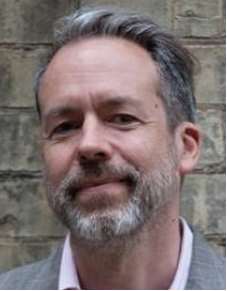
William Higham is the head of Next Big Thing, a consultancy whose clients have included Amazon, HSBC, and MTV. He started his career in the music industry but his focus now is on consumer trends. He helps businesses and leaders predict changing tastes and adjust to meet them.
Higham’s successful trend-spotting has included helping the drinks industry cope with the rise of the New Sobriety, identifying Wellbeing Consumers, and championing Strictly Come Dancing, a surprising hit BBC show.
- Travis Wright
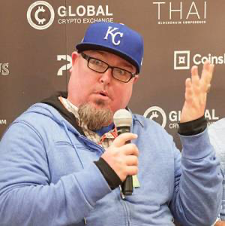
Travis Wright is the co-author of “Digital Sense: The Common Sense Approach to Effectively Blending Social Business Strategy, Marketing Technology, and Customer Experience.” He is the co-presenter, with Joel Comm, of the Bad Crypto Podcast, the leading guide to blockchain technology, and is also a pioneer in the world of digital collectibles.
Wright’s views of AI, machine learning, the blockchain, and martech has brought him to keynote stages around the world, including the annual Martech conference.
- Poppy Crum
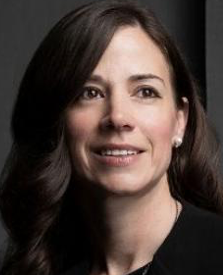
Poppy Crum is an Adjunct Professor in Computer Research at Stanford University and the Chief Scientist at Dolby Laboratories. She has practical experience of using an understanding of human behavior, data, and combinations of wearable and immersive technology, artificial intelligence and machine learning to build commercial innovation.
Crum helps organizations to rethink their understanding of personalization and explains how technology can make products more personal and less technical.
- Ben Casnocha
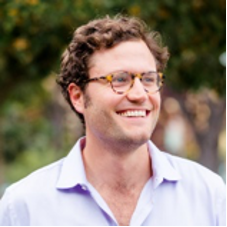
Ben Casnocha is a venture capitalist. He’s a co-founder and partner at Village Global, a $ 100 million investment fund, and was the chief of staff of LinkedIn chairman Reid Hoffman. They’ve written a couple of books together, and Casnocha has helped to form an organization to promote Hoffman’s strategic priorities.
Casnocha’s has also founded e-government firm Comcate, and mentored at startup incubator, Techstars. Ben Casnocha’s speaking topics have covered the new employer-employee relationship, millennials at work, and the importance of thinking like an entrepreneur in today’s work environment.
- Michio Kaku
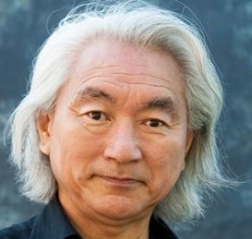
Michio Kaku is best known as a theoretical physicist who is trying to complete Einstein’s unified field theory.
Kaku is a Physics professor at the City University of New York is also a trendspotter. His book “Physics of the Future,” includes interviews with 300 of the world’s top scientists to understand what the next decades, and century, will mean for science.
The science includes the future of computers, robotics, biotechnology, and more. Kaku’s talks cover both the physics of the future and the future of the mind.
- Vivek Wadhwa
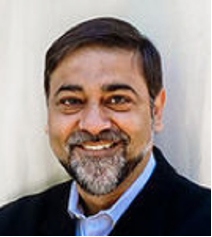
Vivek Wadhwa is a Distinguished Fellow at Harvard Law School’s Labor and Worklife Program. He’s the author of five books and has been named by Foreign Policy magazine one of the world’s “Top 100 Global Thinkers.” His research focuses on the effect of technology on employment.
Wadhwa has explored the role of corporate training programs in the rise of Indian companies, diversity in Silicon Valley, and the risks of America’s visa program for skilled workers. His talks cover ways to navigate technological change, disruption and opportunity, and the role of technology in medicine.
- Kate Darling
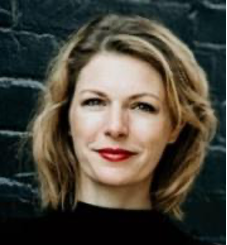
For Kate Darling, the future is all about robots. A research specialist at MIT’s Media Lab, Kate Darling conducts experiments into the way that humans and robots interact. She’s taught a robot ethics course at Harvard Law School and has researched incentives in copyright and patent systems.
Although Darling has a background in law it’s her insights into the behavior of robots and how humans will interact with them that make her talks so vital.
- Kevin Mitnick
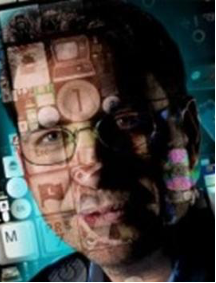
Kevin Mitnick is unusual among futurist speakers in having once been placed on the FBI’s Most Wanted List. He had hacked into more than 40 major companies to see whether he could do it.
Mitnick is now one of the world’s most skilled white hat hackers, hired by governments and corporations to test their security and cyber defense systems. Mitnick’s talks cover a range of cyber defense issues from digital privacy to remote workplace safety and social engineering.
- Crystal Washington
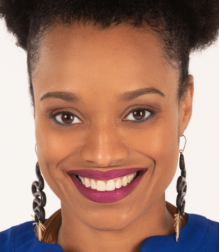
Crystal Washington helps businesses apply technology to increase their profits. She plots a path through social media’s most effective functions, explaining technology hacks that can increase sales.
Washington talks through her own strategies for building an effective and efficient home office, and she ensures that technology serves her clients instead of forcing companies to accommodate themselves to new innovations.
- Gary Shapiro
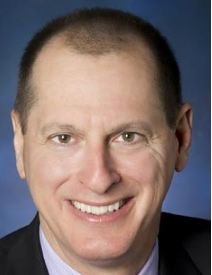
Gary Shapiro is the president and CEO of the Consumer Technology Association, the owner and produce of the Consumer Electronics Show. He’s a leading lobbyist, pushing for more skilled employees, immigration, and free trade, and the elimination of regulatory and tax burdens on innovators.
Shapiro’s talks focus on the place of innovation in America and how it can create jobs and build new industries.
- Chike Aguh
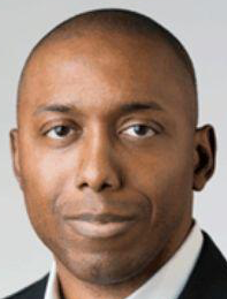
Chike Aguh is a Technology and Human Rights Fellow at the Harvard Carr Center for Human Rights Policy and a Venture Partner at New Markets Venture Partners with a focus on workforce technologies.
Aguh talks about the future of work and explains how automation could change as much as two-thirds of jobs. He also discusses the social impact and the effects of the gig economy, re-skilling, and a multi-generational workplace.
- Cate Trotter
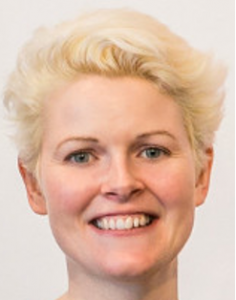
Cate Trotter is the founder and Head of Trends at Insider Trends. Her focus is on retail. She looks for the effects of trends like wearable technology, virtual reality, and the Internet of Things, and explains to brands how those changes will affect the customer experience and future commerce.
As an entrepreneur, Trotter has created and run two companies of her own. She is able to describe both theory and its practical effects and provides these explanations to brands.
- David Hanson
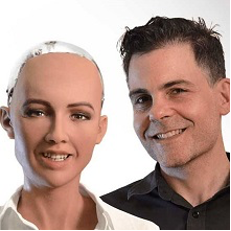
If tomorrow’s world is filled with robots, it will probably be because of David Hanson. The founder and CEO of Hanson Robotics, Hanson started his career at Walt Disney, as a sculptor and a technical robotics consultant.
Hanson has now used artificial intelligence and new skin materials to create a realistic android called Sophia. David Hanson’s talks explain how the world will look when it is filled with androids.
- Gary Hamel
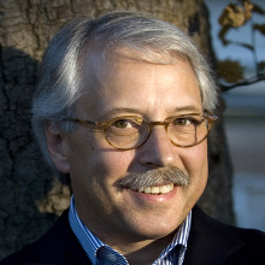
Gary Hamel is the author of “The Future of Management,” a future he’s been bringing to businesses throughout his career. As a consultant, he’s helped a number of large brands update their management and production processes, helping them get more out of their employees and develop more efficient ways to generate innovation.
While many futurist speakers focus on how demand will change, Gary Hamel talks about how management will change to meet that demand.
- Hakeem Oluseyi
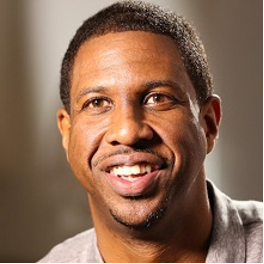
Most futurist speakers focus on how the future will affect business. Hakeem Oluyesi is more about the science. A difficult childhood, which involved ten schools in seven years, led to plenty of reading and science television.
After completing a Ph.D. at Stanford, Oluyesi worked on computer chips in Silicon Valley then moved to NASA where he is now the organization’s Space Education Lead.
Elon Musk might be building the rockets that will take us to space but Hakeem Oluyesi understands what we’ll find when we get there.
- Magnus Lindkvist

Magnus Lindkvist notices the small stuff. In his book, “Minifesto,” he explains how small ideas will help to build large narratives.
At the Stockholm School of Entrepreneurship, Lindkvist created the world’s first academically accredited course in Trendspotting and Future Thinking. His talks focus on how we think about the world, and how we can use those thoughts to understand, predict, and build the future.
- Rachel Armstrong
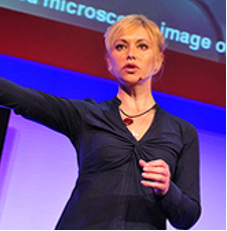
Much of the future will focus on building and improving sustainable environmental solutions. Rachel Armstrong is a professor at Newcastle University in experimental architecture. She looks for innovative environmental solutions to address challenges such as carbon capture, recycling, smart materials and sustainable design.
Armstrong’s expertise is in synthetic biology which she believes could offer sustainable solutions to built environments.
- Richard Watson
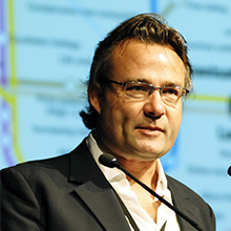
Richard Watson is a Futurist-in-Residence for the Technology Foresight Practice at Imperial College and a founding member of Futures House, a scenario planning consultancy.
Watson’s talks focus on trends and strategic foresight, but his skill is applying those trends to innovation, retail, and other industries, and explaining how those industries will need to adapt.
- Rohit Bhargava
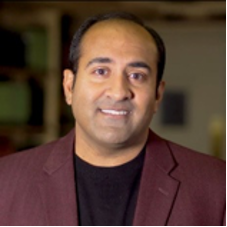
After 15 years at two of the world’s biggest marketing and branding companies, Rohit Bhargava struck out on his own, forming three companies. He is the founder of the Non-Obvious Company, and also its Chief Trend Curator.
Bhargava’s Non-Obvious Trend Report is published at the end of every year and is read by more than a million people.
Top Image Credit: maria eduarda tavares; pexels
The post Top Futurist Speakers to Have at Your Conference in 2021 appeared first on ReadWrite.
(46)


